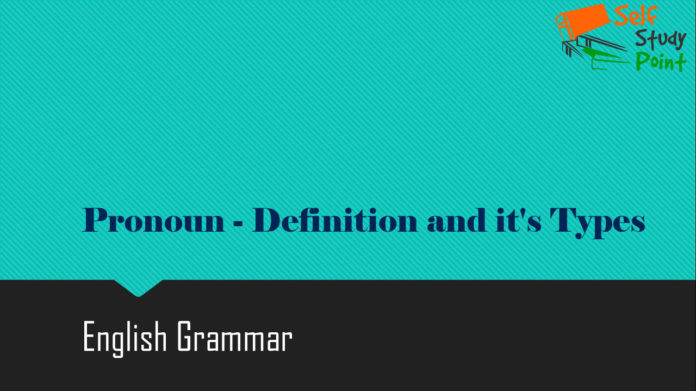
What is Pronoun:
Ram went to Ram’s house because Ram’s mom wanted Ram home.
You can see how odd this sentence feel. There is so many Ram (nouns) in the sentence. Now rewrite this sentence with pronouns.
Ram went to his house because his mom wanted him home.
Now you can see in the second sentence that sentence is about subject. You only use Ram one time, even make the sentence is about him. The words that can be used in place of the noun, are Pronoun. They minimize redundancy in language.
Pronouns are words that take the place of nouns.
Or in simple words, the words that can be used in place of nouns, are pronouns.
Subject and object pronouns:
Subject Pronoun:
The pronouns that replace subjects of sentences are Subject Pronouns. Let see below sentences for reference.
- Rohit plays cricket every day.
- He plays cricket every day.
In the first sentence, Rohit is subject. Which is replaced with the pronoun in the second sentence. This is a subject pronoun.
Object Pronoun:
The pronouns that replace objects of sentences are Object Pronouns. Let see below sentences for reference.
- The prize was given to Jack and Jill.
- The prize was given to them.
In the first sentence, Jack and Jill are objects. Which is replaced with the pronoun in the second sentence. This is an object pronoun.
Pronouns have diiferent words for their subjective and objective case. Some of them are mentioned below:
| Subject | Object |
|---|---|
| I | Me |
| You | You |
| he, she, it | him, her, it |
| we | us |
| they | them |
Reflexive Pronouns:
Let us readout the followig sentence.
Anil saw Anil in the mirror.
You might think, what kind of this sentence. It’s out of universe. Now again rewrite the same sentence.
Anil saw himself in the mirror.
Now, the sentence makes sense. You can see the use of pronoun make the sentence more readable. The pronoun that expresses their selfness of the subjects or objects is Reflexive Pronoun. All the reflexive pronouns end in -self (singular) or -selves (plural).
Personal Pronouns:
Pronouns have different words as per their position in the sentence. Similarly, pronouns are different for the person.
If two persons are talking then the speaker is the First person. The listener is the Second person. About whom the first person is talking is the Third person.
| Subject | Object | |
|---|---|---|
| First person singular | I | Me |
| First person plural | We | Us |
| Second person singular | You | You |
| Second person plural | You | You |
| Third person singular | He, She, It | Him, Her, It |
| Third person plural | They | Them |
Demonstrative Pronouns:
I’m not sure I like these.
When a pronoun is use to demonstrate something, its Demonstrative Pronoun. You can replace these with noun. Like above sentence rewrite as:
I’m not sure I like Burger and Pizza.
Here Burger and Pizza is replaced. Such words are Demonstrative Pronouns.
Possessive Pronouns:
Possessive pronouns are pronouns that indicate possession, or ownership.
- That suitcase is mine.
- Alex explained his ideas in the class.
- Your eyes look very pretty.
- The woman hid her feelings well.
Interrogative Pronouns:
Interrogative pronouns are question words. Look for the question mark to help find them.
- Who goes first?
- What was the man carrying?
- Which does David like coffee or tea?
Relative Pronouns:
I like the woman who lives next door.
The pronoun that relates or replaces the noun that is already use in the same sentence. Look into above sentence, it will make clear. Relative pronouns are usually used in combined sentence. Such sentences are made by combing two sentences. They are mostly same as interrogative pronouns but not have a question mark at the end of the sentence.


Very Nice
Howdy! I simply wish to give you a big thumbs up for your great information you’ve got here on this post. I’ll be returning to your site for more soon.